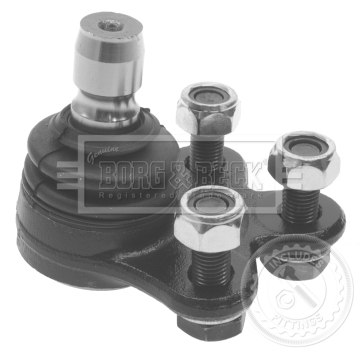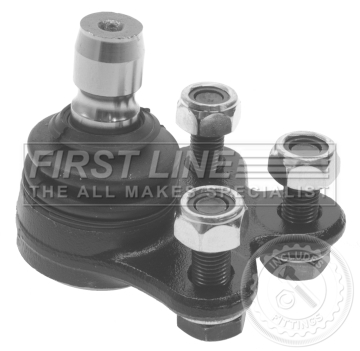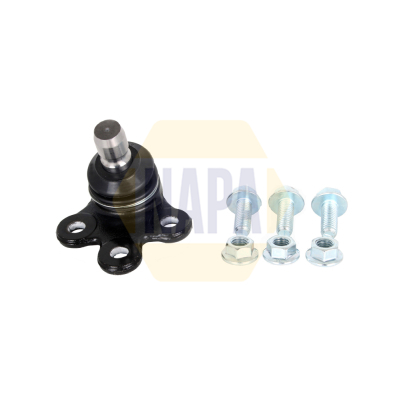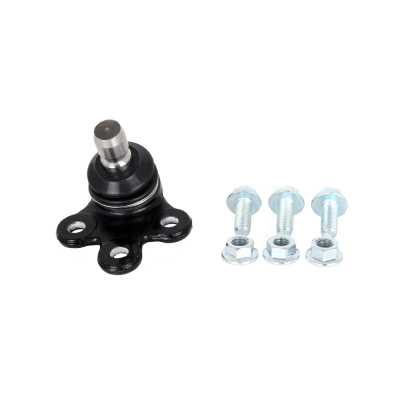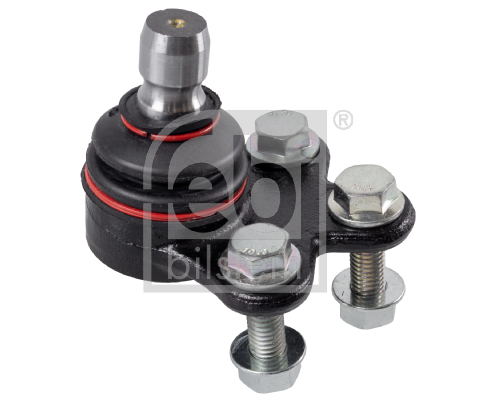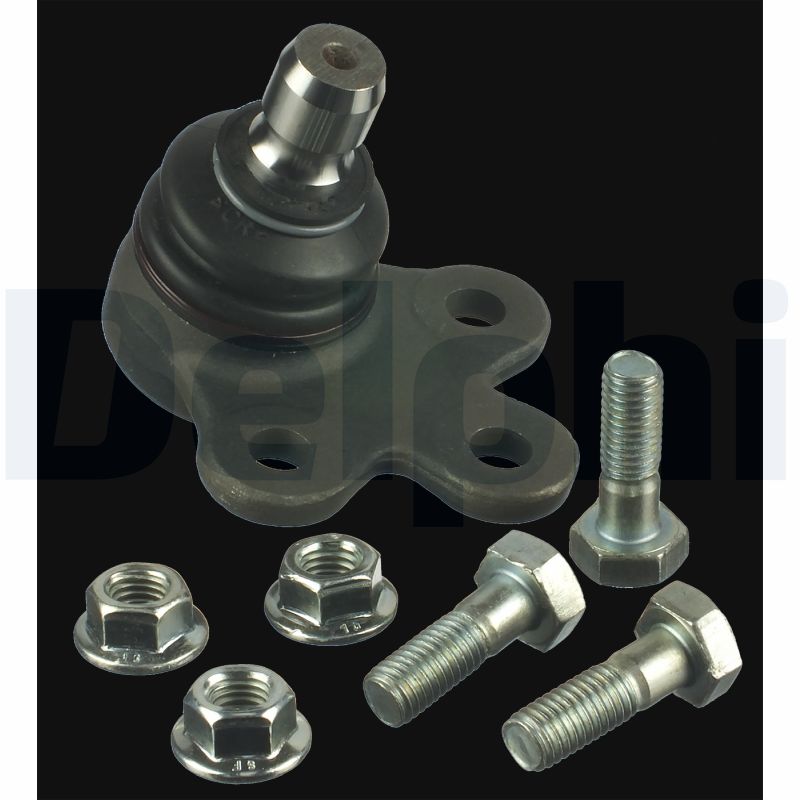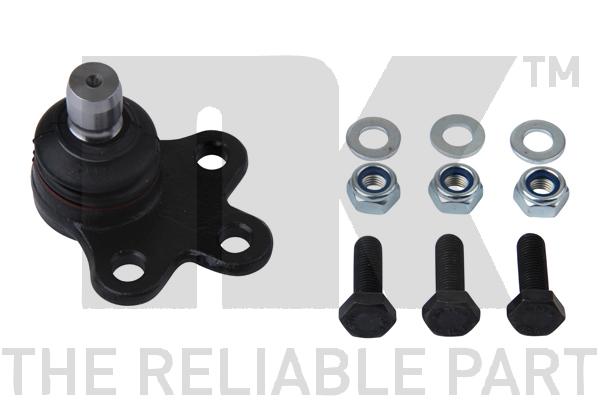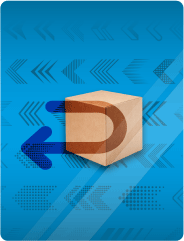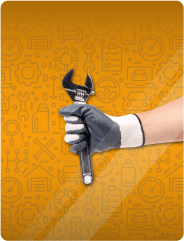Ball Joints
Steering & Suspension Sub-Categories
Important compatibility info
| Number of mounting bores | 3 |
| Number of Rivet Holes | 3 |
| Version | Fitting Kit |
| Function | Ball Joint |
| Bore Diameter 1 | 18.2 mm |
| Mounting Type | Bolted |
| Type | Ball Joint |
| Steering arm type | for control arm |
| Placement on Vehicle | Front Axle Left, Front Axle Right, Lower |
Important compatibility info
| Steering arm type | for control arm |
| Number of mounting bores | 3 |
| Number of Rivet Holes | 3 |
| Version | Fitting Kit |
| Bore Diameter 1 | 18.2 mm |
| Function | Ball Joint |
| Mounting Type | Bolted |
| Type | Ball Joint |
| Placement on Vehicle | Front Axle Left, Front Axle Right, Lower |
Important compatibility info
| Steering arm type | for control arm |
| Number of mounting bores | 3 |
| Mounting Type | Bolted |
| Placement on Vehicle | Lower, Front Axle Left, Front Axle Right |
| Function | Ball Joint |
| Type | Ball Joint |
| Paired article numbers | NST0211 |
Important compatibility info
| Steering arm type | for control arm |
| Function | Ball Joint |
| Placement on Vehicle | Lower, Front Axle Left, Front Axle Right |
| Manufacturer | CHEVROLET VAUXHALL |
| Model | AVEO MOKKA |
| Type | Ball Joint |
| Mounting Type | Bolted |
| Number of mounting bores | 3 |
| Paired article numbers | AST0211 |
Important compatibility info
| Additional Information 2 | with bolts/screws |
| Function | Ball Joint |
| Placement on Vehicle | Front Axle Left, Front Axle Right |
| Weight | 0.584 kg |
| Cone Size | 18 mm |
| Mounting points diameter | 10.5 mm |
| Type | Ball Joint |
| Steering arm type | for control arm |
| Additional Information | with nuts |
Additional Information
General Information
These products are designed to be used as originally intended and not modified for purpose. Please ensure the products are installed by a competent individual. N.B. products are usually supplied without fitting instructions.
Important compatibility info
| Length | 89 mm |
| Function | Ball Joint |
| Thread Size | Pinch Bolt 18.2mm |
| Width | 81 mm |
| Height | 75 mm |
| Type | Ball Joint |
Important compatibility info
| Replaces | 5045009 |
| Type | Ball Joint |
| Function | Ball Joint |
| Net weight | 0.62 kg |
What is a ball joint?
Ball joints are articulated connectors that are mounted at the end of the control arm (wishbone). The ball joints design allows pivot or hinge movement of the knuckle / wheel hub which allows your vehicle to steer correctly.
It is called a ball joint because the lower part of the joint is shaped like a ball which allows it to pivot when required.
What comes with a ball joint?
Ball joints are available with additional fitting parts depending on the brand of the part or the vehicle it is designed for. Generally speaking the parts that come with ball joints is either shown in the image of the part or listed in the parts details.
These can be:
Ball joint
Ball joint with mounting bolts/screws
Some control arms are pre-fitted or have integral ball joints as part of their design. As a result not all ball joints can be replaced. Some ball joints can only be replaced by changing the whole control arm.
How do I choose the correct ball joint?
There are several factors that will determine which ball joint is correct for your vehicle. Matching the vehicle manufacturers original part number with the replacement part is the best way to choose. If you are unable to obtain the original part number here are some things to note:
Fitting position (upper or lower)
Ball joint is listed to match a specific OE part number
Cone size measurement (this is the part that mounts to the knuckle or hub)
Ball joint is listed for the left or right side of vehicle
Vehicle manufacture date (this is not the date the vehicle was registered but the date it was made)
VIN (chassis number) sequence (up to or after as specific number/letter
What brand of ball joint should I choose?
There are a plethora of brands that manufacture suspension parts such as ball joints so it can be difficult to choose. Brands such as Bosch, Delphi and FAG offer parts of premium quality so these are popular. Other brands such as First Line, Borg & Beck, SKF and Apec also make high quality parts but at a lower price point but often with similar warranty periods. As a result these brands prove popular with buyers too. Which brand you choose is largely down to your budget and brand preference.
How can I tell my ball joint needs replacing?
Steering components are massively important to the safety of the vehicle. If you are having any issues with your steering system we would always recommend that you have your vehicle inspected by a qualified mechanic.
Here are some symptoms of a failing ball joint:
Clunking noise on rough or uneven roads
Vibration while driving
Steering feels loose. Feels like it is wandering
Uneven tyre wear
Steering pulls to one side - tracking is out
Rubber boot is split (this would be an MOT failure)
 Proud to be a UK-based company
Proud to be a UK-based company Contact us
Contact us